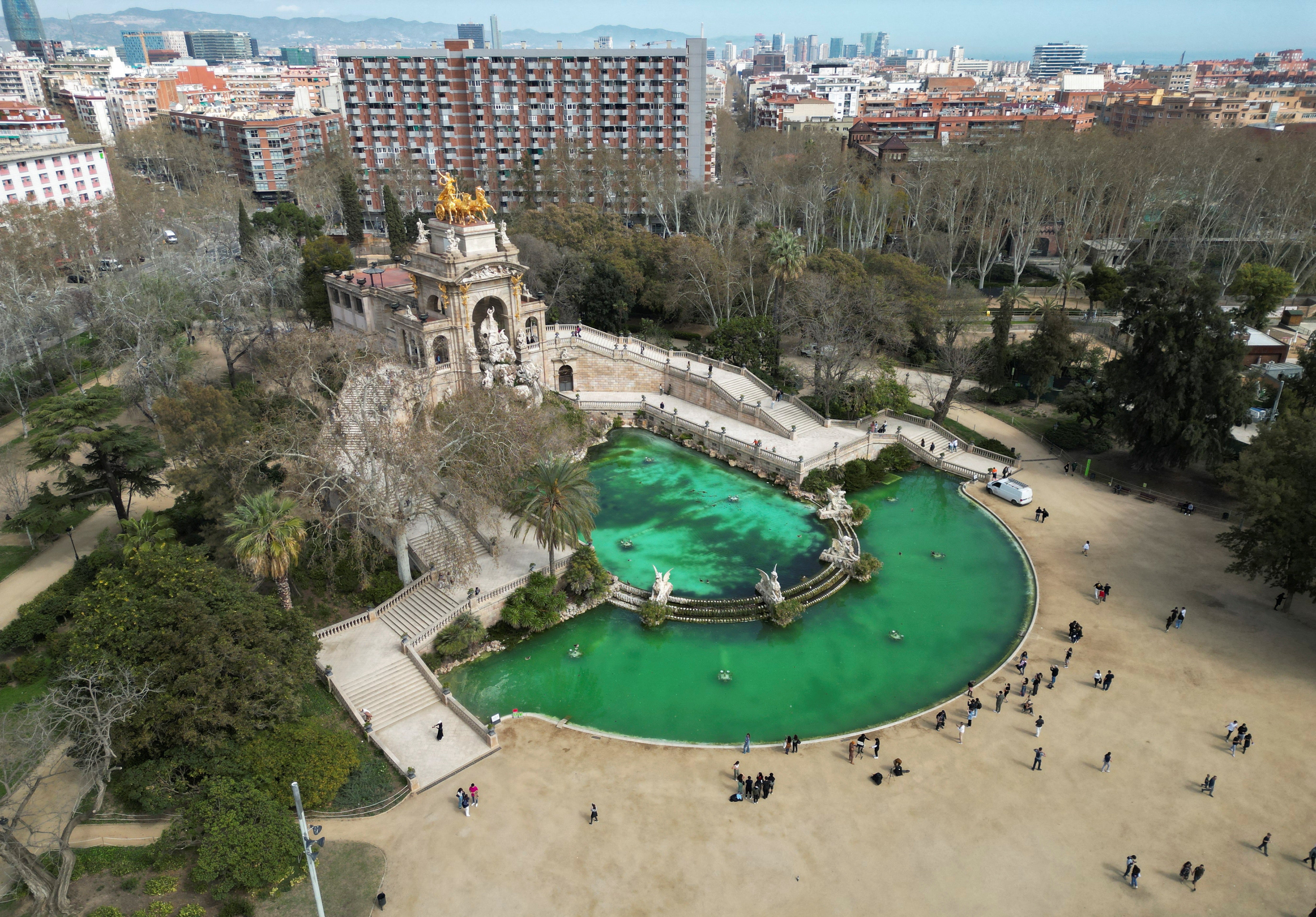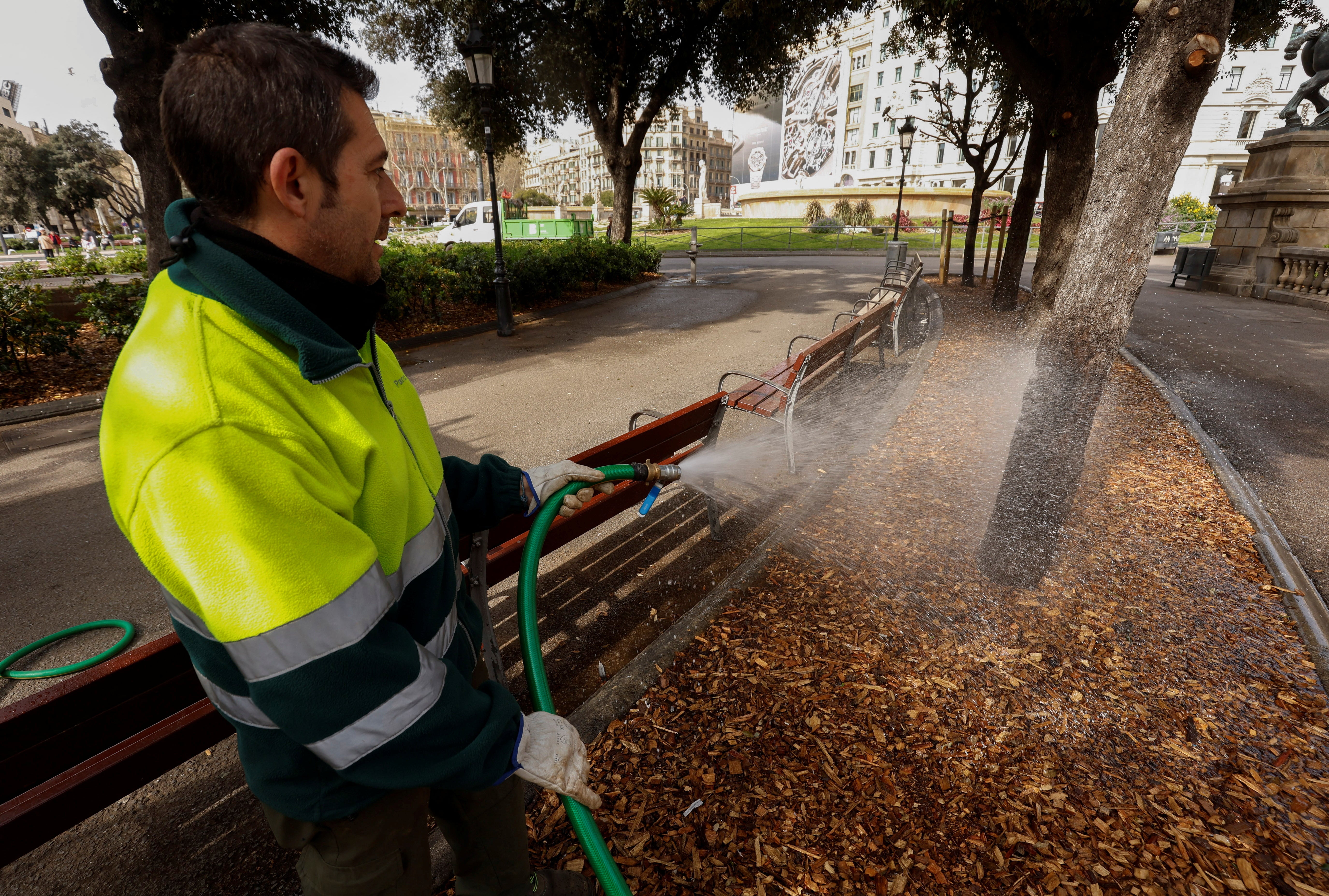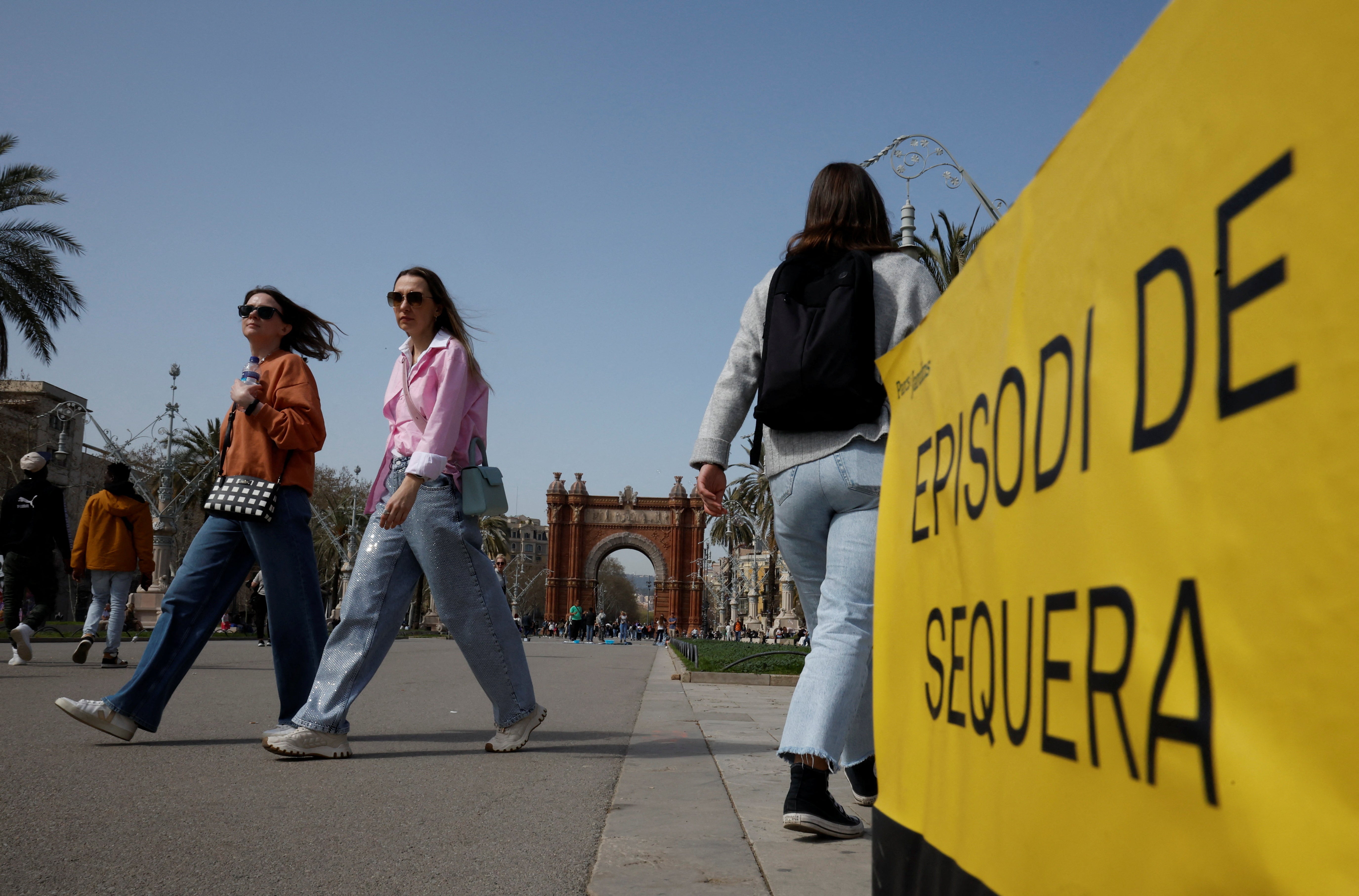Tourists warned as European Easter holiday hotspot forced to shut swimming pools
Reservoir levels are only around 15% of their capacity, prompting curbs on water use by residents, visitors, agriculture and industry

Your support helps us to tell the story
From reproductive rights to climate change to Big Tech, The Independent is on the ground when the story is developing. Whether it's investigating the financials of Elon Musk's pro-Trump PAC or producing our latest documentary, 'The A Word', which shines a light on the American women fighting for reproductive rights, we know how important it is to parse out the facts from the messaging.
At such a critical moment in US history, we need reporters on the ground. Your donation allows us to keep sending journalists to speak to both sides of the story.
The Independent is trusted by Americans across the entire political spectrum. And unlike many other quality news outlets, we choose not to lock Americans out of our reporting and analysis with paywalls. We believe quality journalism should be available to everyone, paid for by those who can afford it.
Your support makes all the difference.Tourists arriving at a holiday hotspot this Easter holiday will be met with large signs in English that read: “Drought alert. During your stay, save water” as beach showers are shut and swimming pools left unfilled.
As the impact of climate change intensifies across southern Europe, Spain’s Mediterranean region of Catalonia, which includes Barcelona, is enduring its worst drought on record.
The signs have appeared at city’s airport and at its iconic Sagrada Familia basilica.
Reservoir levels are only around 15% of their capacity, prompting curbs on water use by residents, visitors, agriculture and industry. Beach showers are shut and swimming pools cannot be filled with tap water, among other restrictions.
Catalan officials have appealed for tourists to act responsibly, but are also adamant the drought should not put them off coming to the Spanish city and region most-visited by foreigners, where tourism accounts for 14.5% of the local economy.

“The message from Catalonia’s tourism agency and business department to campsites and hotels is one of calm: (People) can enjoy their holidays here as usual,” said David Mascort, the regional government’s environmental chief.
Barcelona’s hotel association warned in February the city could not afford to project an image abroad of hotels with empty pools. Hotels’ lobbying prompted the authorities to relax a total ban on filling pools, allowing desalinated water to be used instead.
“Tourists are not scared by the drought and are not aware of it (before arriving),” said the hotel association director Manel Casals. “If we are not careful the image of Barcelona will be impacted (by the drought restrictions) but we are not aware of any negative impact so far. Tourists are still coming.”
Tourists visiting Catalan architect Antoni Gaudi’s Sagrada Familia confirmed they had known nothing of the water restrictions before seeing the billboards.
“Of course, tourists can expend less water if they are aware of the situation,” Finnish traveller Johan Saltin said.

Barcelona’s hotels have halved their water use since 2016, according to a recent hotel association study, though five-star hotels still using the most - 242 litres of water per day on average in 2022 - and all hotels represent 9% of the city’s consumption. Current water restrictions order residents to use only 200 litres per day.
Tourism over-saturation is already prompting protests by some Barcelona residents, and the drought may exacerbate the issue.
Holding signs that read “Let’s close the faucet to tourism” and “Rivers and aquifers without water, hotels’ pools full”, environmental activists held a protest on Wednesday at Barcelona’s tourism agency, demanding restrictions for the sector.
“With the situation we are living, it is indecent that the concern is to (avoid) sending an image of alarm to tourists when the real problem we have is that our territory is drying up,” said protester Josep Sabate.
Join our commenting forum
Join thought-provoking conversations, follow other Independent readers and see their replies
Comments